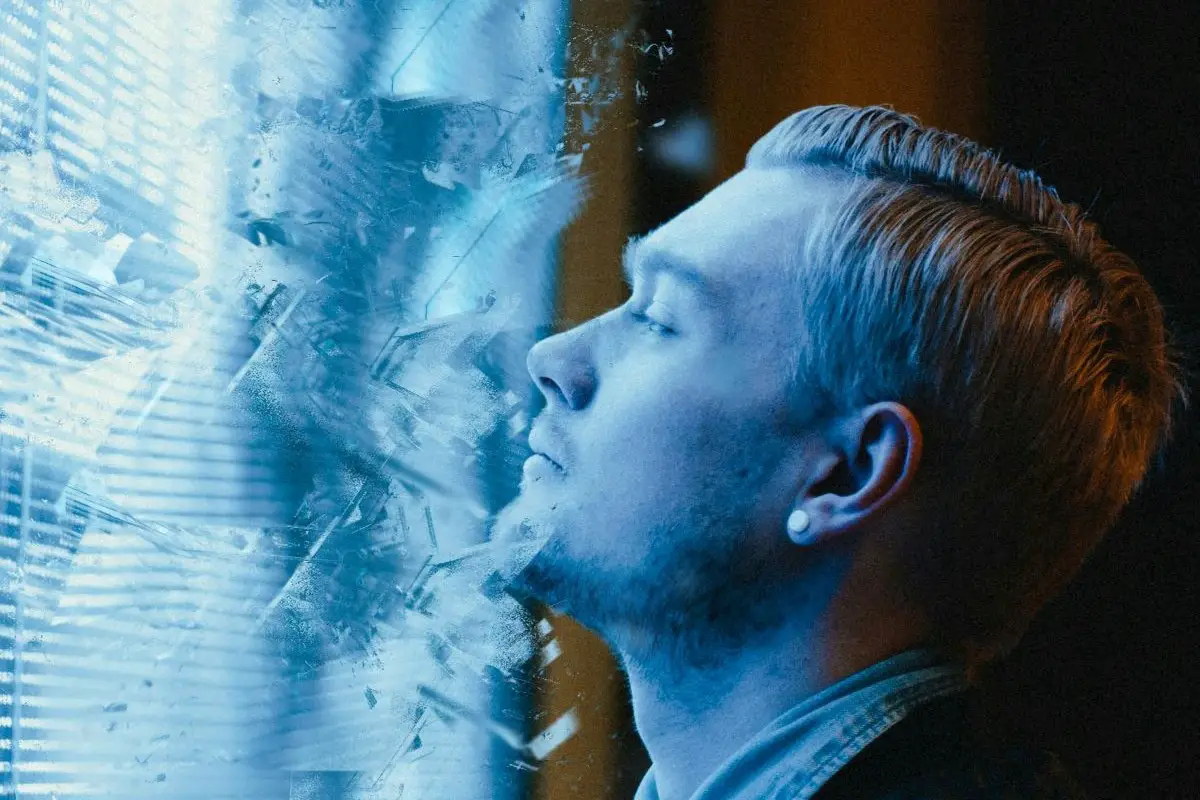Agoraphobia: Managing Irrational Fears Can Lead to Better Life
 I’ve written about quite a few co-occurring conditions that often, but not always, co-exist with autism spectrum disorder. Here are some of the most common ones:
I’ve written about quite a few co-occurring conditions that often, but not always, co-exist with autism spectrum disorder. Here are some of the most common ones:
- Autism and ADHD: Making Sense of the Common Co-Occurring Condition
- Anxiousness: Could Feeling Anxious Over No Obvious Reason Be Holding You Back?
- 8 Potential Reasons for Incontinence in Adults
- Hyperintense Focus: Is Looping in Autism Cause for Concern?
- Breaking the Silence: Startling Insights About Autism and Depression
But, a particular type of anxiety that isn’t discussed as much (often due to embarrassment, fear, or even shame) is agoraphobia.
What is that, exactly? The official agoraphobia definition is that it is a specific type of anxiety disorder, which is often caused by irrational fears that result in avoiding places or situations that might cause panic and feelings of helplessness, being trapped, or being embarrassed.
Individuals with agoraphobia, which may or may not be connected to autism, can sometimes result in a fear of leaving the house. Individuals suffering from the disorder sometimes explain they feel they “can’t” leave because of the intense sense there is no escape from situations beyond their safe place, which has a profound impact on a person’s life.
A thread on Reddit talks about having both agoraphobia and autism. @lonelyblaze wrote, “I often feel like I’m fighting the outside world on two fronts. Like I already have disdain for a lot of public spaces (but I manage) but then there’s also the literal fear of those spaces … I’ve become such a lonely (I prefer ‘independent’ lol) person because of agoraphobia and being autistic means I have so little motivation to actually solve it.
Agoraphobia can be hard to deal with by itself, and when coupled with social anxiety (another Reddit user referred to themself as a “complete alien” when out in public because they were so uncomfortable), it can make social situations and making friends almost unbearable.
When you add irrational fears into the mix of autism or other co-occurring conditions, having a healthy social life can be a huge challenge. I’m not a medical expert or therapist, so make sure you consult with someone who is if you feel you need help to overcome certain limitations.
However, there are treatment options, which could range from cognitive behavioral therapy to certain medicines, to help you live your best life.

For me, however, those fears are about literally pushing myself out of my comfort zone.
One of my favorite quotes about fear is by Frank Herbert in Dune. In part, it says, “I must not fear. Fear is the mind-killer.” My inner voice speaks to me about not letting fear kill my mind and keep me from the life I want to live.
You can also look into stoicism, which is something I try and practice daily. This is a philosophy that helps you control your emotions so they don’t control you, and provides a path for overcoming negative emotions so you can live life to the fullest.
I’ve written a blog about it, and hope you’ll find it interesting as well!
LEARN MORE: Mastering Your Mind: Discover the Secrets of Stoicism Philosophy
Delving into Agoraphobia Definition and Irrational Fears
Agoraphobia is an anxiety disorder characterized by intense fear and avoidance of places or situations that might cause panic, feelings of helplessness, or embarrassment. To better understand agoraphobia and its potential relationship with autism, let’s explore agoraphobia definition in more depth.
Key Features of Agoraphobia Disorder 
Fear of Specific Situations:
- Open spaces (parks, parking lots, bridges)
- Enclosed spaces (shops, theaters, elevators)
- Crowded areas (concerts, public transportation)
- Fear of Leaving the House
- Being outside the home alone
Anxiety Symptoms:
- Rapid heartbeat and breathing
- Sweating and trembling
- Nausea or dizziness
- Chest pain or discomfort
- Fear of losing control or “going crazy”
Avoidance Behaviors:
- Restricting travel or daily activities
- Requiring a companion for outings
- Reliance on “safe” people or places
Impact on Daily Life:
- Social isolation
- Difficulty maintaining employment or education
- Strained relationships with family and friends
- Reduced quality of life and independence
Development and Progression:
- Often develops after experiencing panic attacks
- Can worsen over time if left untreated
- May fluctuate in severity depending on life circumstances and stress levels
- Understanding the nuances of both autism and agoraphobia allows us to explore their potential interactions more effectively.
The Intersection of Autism and Agoraphobia
While autism and agoraphobia are distinct conditions, there are several reasons why they might co-occur or influence each other. Here’s more about these potential connections:
Sensory Overload and Anxiety
Many autistics experience sensory sensitivities, which can overwhelm crowded or noisy environments. This sensory overload can trigger anxiety responses similar to those experienced in agoraphobia.
For example, an autistic person might avoid shopping malls not just due to social anxiety, but because the combination of bright lights, loud noises, and bustling crowds creates an unbearable sensory experience.
LEARN MORE: 10 Proven Techniques for Managing Autism and Sensory Issues
Social Challenges and Public Spaces
The social difficulties experienced by some autistic people can lead to increased anxiety in public situations.
Challenges with interpreting social cues or navigating unspoken social rules may make public spaces feel unpredictable and threatening.
This anxiety can potentially develop into agoraphobic tendencies, where the individual begins to avoid these situations altogether.
LEARN MORE Autism Social Skills – Inferencing and Body Language Hurdles to Overcome
Need for Routine and Predictability
Both disorders can involve a strong preference for familiarity and predictability. Autistic individuals often rely on routines to navigate daily life, while those with irrational fears may stick to “safe” places and routines to avoid anxiety triggers.
This shared need for consistency might reinforce avoidance of new or uncertain situations, such as a fear of leaving the house.
RELATED: Rigid Routine – Why Being Inflexible Can Harm Happiness
Difficulty with Change and Transitions
Autistic individuals often struggle with transitions and changes in routine. This difficulty can align with the avoidance patterns seen in an agoraphobia definition, where venturing into new environments or situations is anxiety-provoking.
The comfort found in familiar surroundings might inadvertently reinforce agoraphobic behaviors.
RELATED: Why Black and White Thinking Holds You Back
Executive Functioning and Coping Strategies
The executive functioning challenges associated with autism can make it harder to develop and implement effective coping strategies for anxiety. This difficulty might contribute to the development or persistence of agoraphobic symptoms, as the individual struggles to manage anxiety in challenging situations.
LEARN MORE: Break Free From These 7 Unhealthy Coping Mechanisms
Misinterpretation of Physical Sensations
Some autistic individuals have difficulty interpreting internal bodily sensations.
This can lead to misinterpretation of normal physiological responses (like increased heart rate in new situations) as signs of danger, potentially triggering or exacerbating anxiety symptoms associated with agoraphobia.
RELATED: Sensory Integration Dysfunction? A Sensory Diet Can Change Your Life
Comorbid Depression
Both disorders have high rates of comorbidity with depression. The social isolation and reduced quality of life associated with both conditions can contribute to depressive symptoms, which in turn may worsen anxiety and avoidance behaviors.
READ MORE: Breaking the Silence About Depression
Masking and Social Exhaustion
Many autistic individuals engage in “masking” – hiding their natural autistic traits to fit in socially. This can be mentally and emotionally exhausting, potentially leading to increased anxiety in social situations and a desire to avoid them, mirroring agoraphobic tendencies.
READ MORE: Autism Masking & Code Switching, and Redefining Acceptance
Management Strategies for Autism and Agoraphobia
For individuals dealing with both autism and agoraphobia, a comprehensive and tailored approach is crucial. Here are some strategies that may be helpful, expanded with more detail:
Professional Support
Seek help from mental health professionals experienced in both autism and anxiety disorders. A combination of approaches may be beneficial:
Cognitive-behavioral therapy (CBT)
Adapted for autistic individuals, CBT can help challenge unhelpful thought patterns and gradually face feared situations.
Exposure therapy
Carefully planned and executed exposure to anxiety-provoking situations can help reduce fear over time.
Mindfulness-based therapies
These can help individuals become more aware of their thoughts and feelings without judgment, potentially reducing anxiety.
Gradual Exposure
Work with a therapist to create a personalized hierarchy of feared situations, starting with the least anxiety-provoking. Practice facing these situations gradually, with support:
- Use relaxation techniques before and during exposure
- Break down larger goals into smaller, manageable steps
- Celebrate small victories and progress
Sensory Management
Develop strategies to manage sensory overwhelm, which can contribute to both autistic meltdowns and anxiety:
- Use noise-canceling headphones or earplugs in noisy environments
- Wear sunglasses or hats to reduce visual stimulation
- Carry comfort items (e.g., stress balls, fidget toys) for self-regulation
- Practice sensory grounding techniques
Self-Advocacy
- Learn to communicate needs and boundaries effectively in challenging situations:
- Develop scripts for common social scenarios
- Practice assertiveness skills in safe environments
- Create a card explaining your condition to show others if needed
Mindfulness and Relaxation Techniques
Practice coping strategies to manage anxiety symptoms:
- Deep breathing exercises
- Progressive muscle relaxation
- Guided imagery or visualization
- Mindfulness meditation adapted for autistic individuals
Support Network
Build a strong support system of understanding friends, family, or support groups:
- Join autism and/or anxiety support groups (online or in-person)
- Educate close friends and family about your experiences
- Consider working with an occupational therapist or life skills coach
Medication
In some cases, medication may be recommended to help manage anxiety symptoms. Always consult with a healthcare provider to discuss options:
- SSRIs (Selective Serotonin Reuptake Inhibitors) may help with both anxiety and repetitive behaviors
- Anti-anxiety medications might be prescribed for short-term use in specific situations
- Be aware of potential sensitivities or side effects, which may be more pronounced in autistic individuals
Make changes to daily life that support overall well-being:
- Establish a consistent sleep schedule
- Engage in regular physical exercise, adapted to individual preferences and sensitivities
- Maintain a balanced diet, being mindful of any sensory-based food aversions
- Limit caffeine and alcohol intake, which can exacerbate anxiety
Assistive Technology
Utilize technology to support independence and reduce anxiety:
- Use navigation apps to plan routes and avoid getting lost
- Try anxiety management apps for on-the-go coping strategies
- Consider virtual reality exposure therapy under professional guidance
Environmental Modifications
Adapt your living and working spaces to reduce anxiety triggers:
- Create a sensory-friendly “safe space” at home
- Use visual schedules and reminders to increase predictability
- Negotiate accommodations at work or school (e.g., quiet workspace, flexible hours)
Social Skills Training
For autistic individuals, improving social skills can help reduce anxiety in social situations:
- Participate in social skills groups or workshops
- Practice social scenarios through role-play
- Learn to recognize and interpret social cues
Creative Expression
Engage in creative activities as a form of self-expression and anxiety relief:
- Art therapy
- Music or sound therapy
- Journaling or creative writing
The Importance of An Accurate Diagnosis From Irrational Fears or Condition
Distinguishing between autism-related social challenges and agoraphobia can be complex, as some symptoms may overlap. This underscores the importance of accurate diagnosis:
Differential Diagnosis
Professionals need to carefully differentiate between autistic traits, such as preference for routine and difficulty with social interaction, and true agoraphobic avoidance.
Comorbidity Assessment
A thorough evaluation should assess for the presence of both conditions, as well as other potential comorbidities like depression or other anxiety disorders.
Personalized Treatment Planning
Accurate diagnosis allows for the development of treatment plans that address the specific needs arising from both autism and agoraphobia.
Avoiding Misattribution
Without proper diagnosis, autistic traits might be misattributed to agoraphobia or vice versa, leading to ineffective treatment approaches.
Self-Understanding

By combining professional support, personalized coping strategies, and a supportive environment, individuals experiencing both autism and agoraphobia can work towards expanding their comfort zones and improving their quality of life.
The journey may be challenging, but with patience, persistence, and the right support, it is possible to manage both conditions effectively.
Remember, if you or someone you know is dealing with autism, agoraphobia, or both, don’t hesitate to reach out to healthcare professionals for personalized guidance and support.
Every step toward understanding and managing these conditions is a step towards a more fulfilling and connected life.
Misconceptions About Autism that Lead to Stigmas and Stereotypes
Learn more about other stigmas and stereotypes that autistics face:
- Why Labeling People Can Lead to Stereotyping and Discrimination
- Autism Media Stereotypes: We’re Not All Geniuses, Savants, or Lonely
- Beyond Stereotypes: How Rain Man Revolutionized the Perception of Autism
- Absurd Plot About Autism and Evolution and Why It’s Harmful
- Moving Past the Tired Conspiracy Theory of Vaccines and Autism
- 3 Reasons Why Pathologizing Crushes Autism Acceptance and Inclusion
- The Hidden Hurdles: Challenging Autism Stigmas in Today’s Politics
- History of Autism: Revealing Shocking Mysteries from the Past
- Knocking Down the Stigma to Autism Obsession
